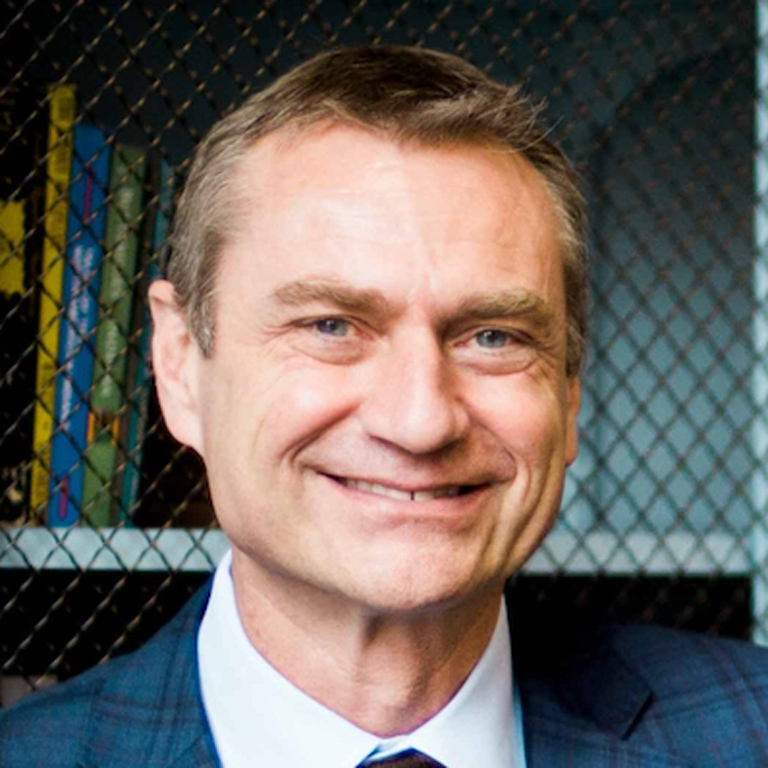College of Arts and Sciences
Bloomington,, IN 47405-7101

Rick Van Kooten, who first joined IU Bloomington as an assistant professor in 1993, became the executive dean of the IUB College of Arts and Sciences on July 1, 2019. Before this appointment, he served for five years as chair of the Department of Physics and four years as the IU Bloomington vice provost for research, working across the campus as a passionate advocate for scholarly activity. During his tenure, research infrastructure for intelligent systems engineering was established, and funding for humanities research expanded significantly, as the campus secured grants from many sources, including the Luce and Mellon foundations and the National Endowment for the Humanities. In other areas, Van Kooten steered two of IU's major 21st century initiatives, the Emerging Areas of Research and the IUB components of the Grand Challenges initiatives. The Emerging Areas of Research program has led to new centers of excellence in human and machine learning, quantum engineering and science, and sustainable food systems. The Grand Challenges are a five-year, over $200-million research initiative to address the big issues facing Indiana, such as environmental resilience, precision health, and addressing the addictions crisis.
While growing up in Canada, Van Kooten was most interested in science. He earned his undergraduate degree in engineering science from the University of Toronto and a Ph.D. in physics from Stanford University. He was then named scientific associate at the European Laboratory for Particle Physics (CERN) and then research scientist at the University of Hamburg. He has written or co-written more than 750 publications, most in the area of particle physics. Van Kooten has also chaired the Fermi National Laboratory Physics Advisory Committee, as well as served on a committee that set out the current long-term plan for particle physics in the U.S.
As both scientist and administrator, Van Kooten is an experienced collaborator, having guided the research directions of large international particle physics collaborations of between 350 and 600 researchers via several appointments as physics coordinator. During his years as vice provost of research, he became familiar with and acquired a deep appreciation for the broad range of disciplines, departments, and scholarly and creative activity across the entire campus, including the College and its Schools. While advocating for the success of the many components of the College—from Classical Studies to the Hamilton Lugar School of Global and International Studies, to the newly named Eskenazi School of Art, Architecture + Design—he plans to build on this collaborative history, fostering close input and expertise from many diverse sources while still appreciating and valuing the concentrated scholarship of the single researcher.
An award-winning teacher, Van Kooten has taught a wide variety of undergraduate and graduate courses. He remains firmly committed to the importance of a liberal arts education in the College of Arts and Sciences, both for its inherent value and for building the foundational skills of creative, collaborative, and critical thinking and communication. Along with strengthening undergraduate education, he plans to bolster graduate education in the College, recognizing graduate students as the driving force of a highly research-active campus.